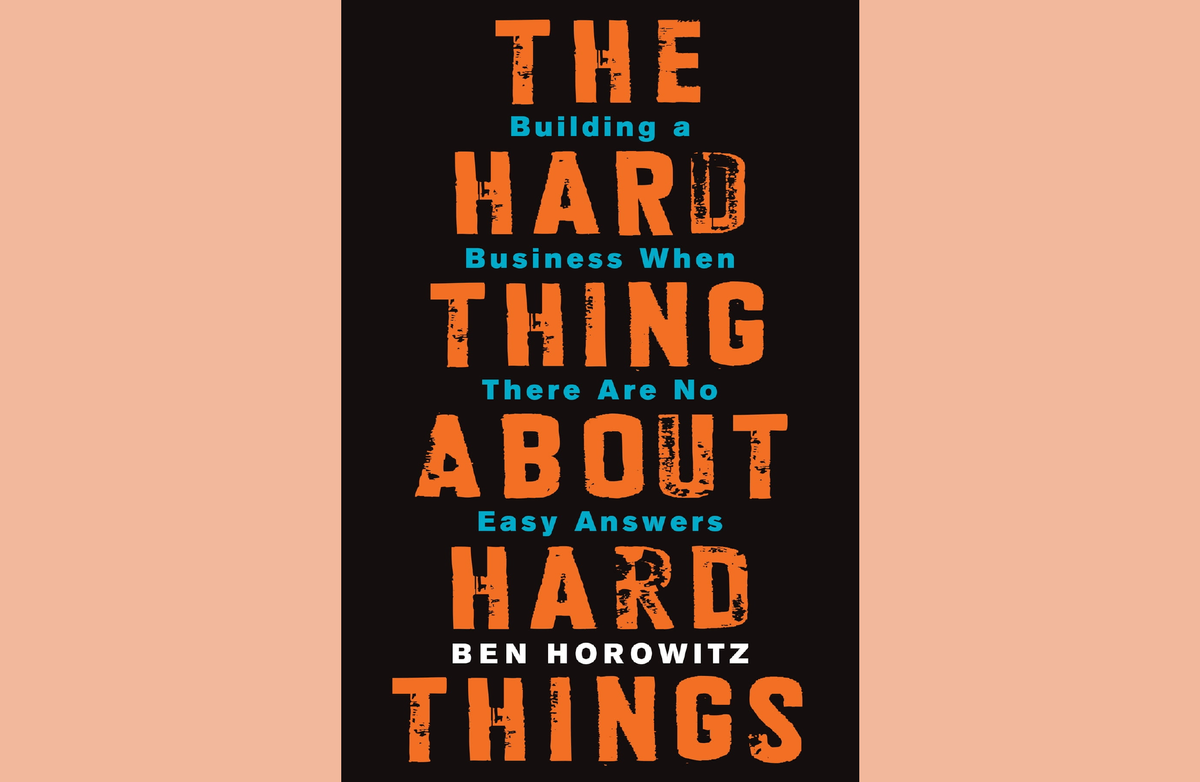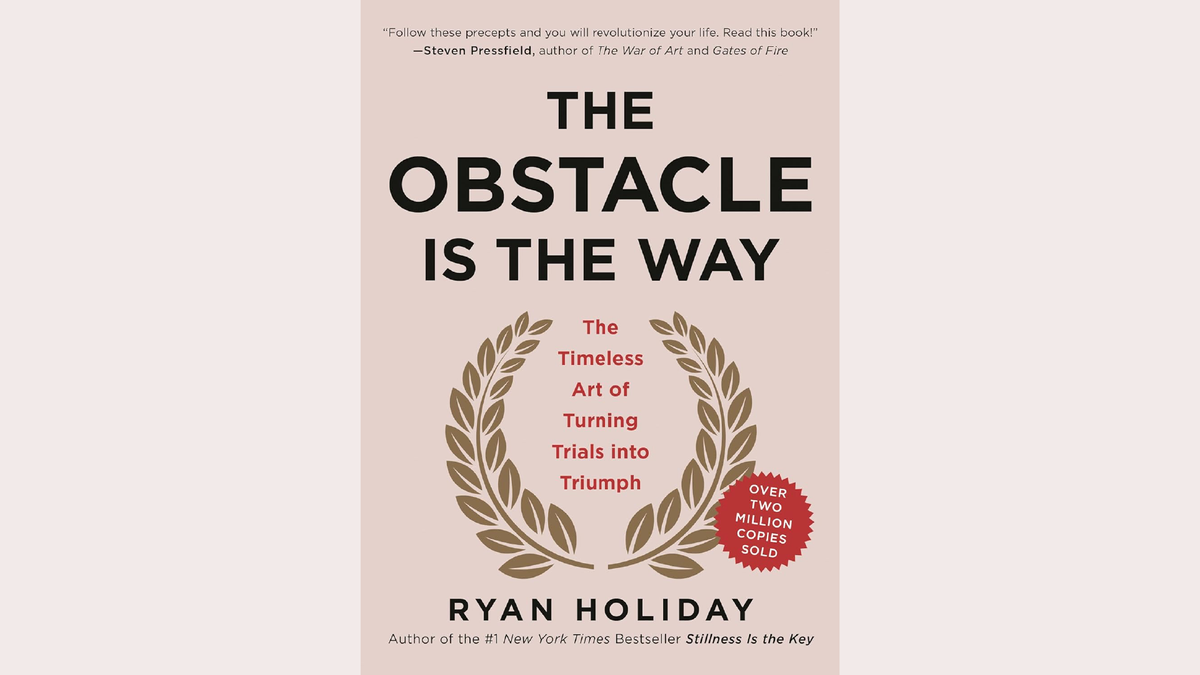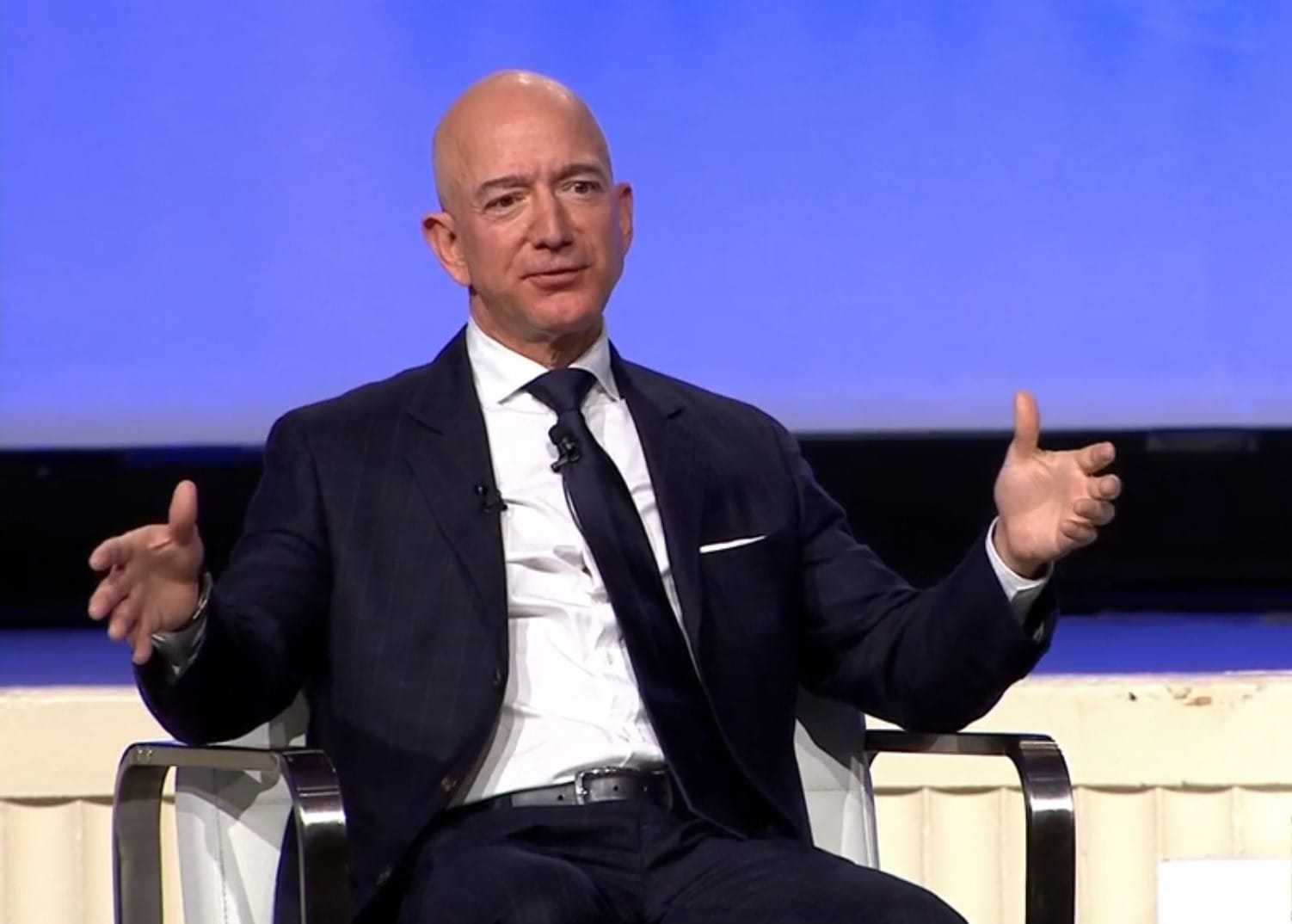What You Should Know: The Biggest, Most Painful Startup Challenges
Discover how to navigate the biggest and most painful startup challenges. Learn from Jeff Bezos’ journey with Amazon, critical insights from essential books, and personal experiences to help founders overcome financial strains, build strong alliances, and face relentless competition.

Let’s get real for a minute—startups are hard. Not just “a little challenging,” but gut-wrenching, soul-crushing hard. No matter how well you plan, how brilliant your idea is, or how talented your team is, every startup will face monumental challenges that make you question everything.
The good news? These challenges aren’t just inevitable; they’re necessary. They are the fire that shapes you into the leader your company needs. If you’re reading this, you’re likely already deep into the journey, maybe struggling with some of these challenges. Whether you’re losing sleep over product-market fit, running out of cash, or battling fierce competition, I’ve been there.
I will break down the most painful challenges every founder faces—the moments that test your resolve, your resources, and sometimes your sanity. I’ll share how to navigate them to emerge more robust, focused, and ready to take your startup to the next level.
The Pain of The Squeeze: When Everything Feels Like It’s Falling Apart
One of the biggest challenges I’ve repeatedly faced is what I call The Squeeze. This is when your startup is teetering on the edge, and everything feels like it’s about to implode. You’ve been hustling, iterating, pushing out products, and searching for product-market fit, but the clock is ticking on your cash reserves. The pressure is immense. Customers are hesitant, the market isn’t biting, and your runway is shrinking daily.
Most founders will face The Squeeze at least once (and probably more than that). It’s that moment when you wonder if you’ve made the wrong choice or if the business will ever work. You lose sleep, motivation, and sometimes your sense of direction. But here’s what you need to know: these tests are the crucible where true entrepreneurs are made.
When I faced The Squeeze in my journey, I leaned on my vision and my allies. The vision of the company’s impact kept me going when everything else seemed uncertain, and my trusted advisors, mentors, and friends prevented the isolation and burnout many founders fall into. Without their support, I couldn’t have successfully sold LaunchPodium and Qualitance.
The lesson is that you must hold tight to your purpose and lean on your network even in your darkest hours. The worst thing you can do is carry it all alone.
The Isolation Trap: Why You Must Build Your Allies
One of the most painful challenges of being a founder is feeling like you’re carrying the world’s weight on your shoulders. There’s this unspoken expectation that founders should always have the answers and be in control. But that’s a lie. No one builds a startup alone; trying to do so is a recipe for burnout.
Early in my journey, I fell into the trap of isolation. I thought I had to bear the burden when things got tough. It wasn’t until I hit a breaking point that I learned the value of leaning on my allies. Mentors, advisors, and even close friends became my lifeline. They offered perspective, guidance, and sometimes just a sounding board for my frustrations. If there’s one piece of advice I can give you, don’t go it alone.
They are building solid relationships with trusted allies—whether co-founders, investors, or peers—can be the difference between surviving those painful moments and folding under pressure. Your allies provide not just practical help but also emotional support. They remind you that you’re not crazy, that your vision matters, and that your struggles are part of the process.
Facing Your Fiercest Enemies: Competitors, Critics, and Self-Doubt
Every founder encounters enemies along the way—and no, I’m not just talking about the competition. Enemies can come in many forms; the hardest ones are often internal.
External Enemies: The Fierce Competitors
In the early days of Amazon, Jeff Bezos faced fierce competitors like Barnes & Noble and Walmart. These companies were giants in retail, and everyone was skeptical that a small online bookstore could compete. But here’s the thing: competition isn’t your enemy—it’s your catalyst. Bezos didn’t back down. Instead, he doubled down on his vision and found ways to innovate where his competitors couldn’t.
Lesson? Don’t fear your competition—use them. Competitors push you to innovate, refine your value proposition, and sometimes even force you to discover untapped opportunities.
Internal Enemies: Self-Doubt and Burnout
But what about the internal enemies? Self-doubt is one of the most painful challenges every founder faces. That little voice in your head saying, “You’re not good enough,” or “Maybe you’re not cut out for this.” It’s paralyzing. The pressure to succeed can lead to feelings of inadequacy; if you let it, that doubt can consume you.
The key is to reframe these doubts as part of the journey. You’re not the first founder to feel this way; you certainly won’t be the last. Whenever I’ve felt this way, I’ve reminded myself that the challenges are my rite of passage—the pain is temporary, but the lessons are lifelong. Overcoming doubt is what separates the promising founders from the great ones.
The Books That Will Help You Navigate Painful Challenges
Navigating the complexities of running a startup is one of the most intense tests a founder can endure. At every stage, you’ll be confronted with seemingly insurmountable obstacles, and it’s often difficult to find the proper guidance amid the chaos. Books provide invaluable insight, especially those written by entrepreneurs who’ve faced similar struggles. They can offer both practical strategies for survival and mental frameworks to help you persevere through the darkest moments.
Two books stand out as essential for any founder facing painful startup challenges: “The Hard Thing About Hard Things” by Ben Horowitz and “The Obstacle Is the Way” by Ryan Holiday. These works are more than just business guides—they’re survival manuals for anyone navigating the harsh realities of entrepreneurship. Let’s explore how these books deliver potent lessons to help you navigate the tests, allies, and enemies you’ll inevitably encounter on your journey.

“The Hard Thing About Hard Things” by Ben Horowitz
Ben Horowitz’s “The Hard Thing About Hard Things” should be at the top of your reading list if you’re looking for raw, no-holds-barred advice on what it’s like to run a startup. Horowitz doesn’t offer you a glamorous picture of startup life; he provides the gritty, unfiltered truth about how hard it is. He’s been there himself as the co-founder of Loudcloud and Opsware, guiding his company through the tech bubble burst and eventually selling it to Hewlett-Packard for $1.6 billion.
What makes Horowitz’s book so impactful is his focus on the most painful, heart-wrenching decisions founders must make—decisions that will make or break your company. These are the situations where there’s no obvious correct answer, and no one else can make the call for you.
Critical Insights for Founders:
• Embrace the Chaos of Leadership: One of Horowitz’s central ideas is that being a CEO isn’t about controlling everything—it’s about learning to lead through chaos. The hardest thing about running a startup isn’t building a product or raising money—it’s managing people through uncertainty, layoffs, crises, and failures. Horowitz doesn’t sugarcoat this. He clarifies that leadership in a startup means making decisions that no one else wants to make and taking responsibility for the fallout.
Horowitz shares personal stories about how he had to fire friends, lead through layoffs, and decide to pivot his company, even when he wasn’t sure it would work. These stories are both sobering and empowering because they remind founders that painful decisions are part of the job—and that making them is what defines outstanding leadership.
• Be Decisive in the Face of Uncertainty: Another central theme in the book is the importance of decisiveness. Startups move fast; sometimes, you’ll be forced to make high-stakes decisions with incomplete information. The temptation to delay tough calls, especially when they involve people or significant changes in strategy, can be overwhelming. However, Horowitz argues that indecision is far more damaging than making a wrong move. As a founder, you can’t afford to sit on the fence—hesitation can be fatal.
In my experience with LaunchPodium, there were moments when making a decision felt like jumping off a cliff. The stakes were high, and the data wasn’t precise. But Horowitz’s philosophy helped me realize that moving forward—even when uncertain—beats stagnation every time. I learned to trust my instincts, accept the potential risks, and take action.
• The Struggle is Normal: One of the most powerful takeaways from Horowitz’s book is his validation of all founders’ struggles. He calls it “The Struggle,” a constant companion of entrepreneurs. It’s the overwhelming pressure you feel when things are going wrong—when your company isn’t making money when you have to fire people, or when you doubt your ability to lead.
However, Horowitz’s message is clear: The struggle is typical, and every great founder has gone through it. You’re not alone in feeling this way, and the fact that you’re struggling doesn’t mean you’re failing—it means you’re doing something difficult and worthwhile. This insight has helped me personally during intense pressure, reminding me that the most challenging parts of the journey are often the most transformative.

“The Obstacle Is the Way” by Ryan Holiday
Where Horowitz’s book focuses on the practical realities of running a startup, Ryan Holiday’s “The Obstacle Is the Way” is about mindset. Based on Stoic philosophy, this book has become a favorite among entrepreneurs, athletes, and leaders because it teaches a critical skill: how to turn challenges into opportunities.
The Stoic idea that “what stands in the way becomes the way” is Holiday’s central message. It’s a simple yet profound concept: the obstacles we face aren’t things to be avoided—they’re the path to our growth. In the world of startups, where you’re constantly faced with impossible problems, this philosophy offers a way to reframe challenges as catalysts for success.
Critical Insights for Founders:
• Reframing Problems as Opportunities: One of the most valuable lessons from Holiday’s book is learning to reframe problems. Every entrepreneur knows that challenges are constant. Whether losing a significant client, running into financial trouble, or facing stiff competition, it’s easy to feel overwhelmed. But Holiday teaches that problems aren’t roadblocks—they’re opportunities.
When I was running Qualitance, there were multiple moments where I could have seen setbacks as reasons to give up. Instead, inspired by Holiday’s teachings, I curiously approached these obstacles. What could this problem teach me? How could I pivot? Instead of seeing failure, I saw potential, and that shift in mindset was often the key to pushing through.
• Focus on What You Can Control: Stoicism teaches us that we can’t control everything, but we can control how we respond to what happens. This is a critical lesson for founders because so much of startup life is about dealing with uncertainty and forces beyond our control. Things can permanently derail your plans, whether market conditions, customer behavior, or even the economy.
Holiday’s book encourages founders to focus on what they can control—namely, their thoughts and actions. For example, when Amazon faced criticism in its early days, Jeff Bezos didn’t waste time worrying about what the media or investors thought. He focused on building the best possible customer experience. By focusing on what was in his control, Bezos turned Amazon into the customer-centric powerhouse it is today.
• Action is the Cure for Anxiety: Another powerful concept from Holiday’s book is the idea that action is the antidote to fear and anxiety. When facing challenges, the natural response is feeling paralyzed by uncertainty. But Stoicism teaches that the best way to overcome fear is to take small, meaningful actions that move you forward.
In my experience, when things felt overwhelming, the simplest way to move past the fear was to take action—even if it was something small, like setting up a new meeting or revisiting a marketing strategy. Action creates momentum, and momentum generates progress. Holiday’s philosophy helped me realize that taking even one small step forward daily is the key to conquering any obstacle.
• Embrace Failure as a Learning Tool: Perhaps the most challenging lesson for any founder is embracing failure. We’re conditioned to see failure as the opposite of success, but Holiday shows that failure is often the key to innovation. Every setback and misstep is an opportunity to learn something new, improve your strategy, and get closer to success.
In one famous example, Holiday highlights the story of Thomas Edison, who “failed” thousands of times while trying to invent the lightbulb. Instead of being discouraged by each failure, Edison saw them as steps toward figuring out what didn’t work—until he eventually discovered what did. In the same way, founders must embrace failure as part of the journey. Every obstacle you face teaches you something valuable, and the faster you adopt this mindset, the quicker you’ll innovate.
Why These Books Are Essential for Every Founder
“The Hard Thing About Hard Things” and “The Obstacle Is the Way” offer a powerful toolkit for navigating the most painful startup challenges. One provides practical guidance for making tough decisions, managing crises, and building a solid team. At the same time, the other teaches you to cultivate mental resilience to turn challenges into growth opportunities.
These books will help you survive the trials of entrepreneurship and thrive through them. They offer a mix of real-world tactics and timeless wisdom, essential for any founder facing the unpredictable and often brutal world of startups.
As a founder, it’s crucial to remember that every challenge—no matter how painful—is a chance to grow stronger, smarter, and more resilient. Adopting the lessons from these two books, you’ll be better equipped to face the tests, allies, and enemies along your journey.

Case Study: Jeff Bezos and the Biggest Startup Challenges
When overcoming the biggest and most painful startup challenges, Jeff Bezos stands out as one of the most compelling examples of perseverance, strategic foresight, and bold risk-taking. From the moment he launched Amazon in 1994 as an online bookstore, Bezos knew he wasn’t just building a company—he was embarking on a monumental journey that would test him in ways few founders ever experience. His story involves facing relentless challenges, creating an unstoppable team of allies, and using competition and criticism to fuel Amazon’s extraordinary growth.
Let’s examine how Bezos faced his Tests, Allies, and Enemies—the core elements that make up the heart of any founder’s journey—and what lessons we can learn from his approach to navigating these challenges.
Facing Financial Struggles: The Ultimate Test
One of the most formidable challenges Jeff Bezos faced early on was Amazon’s financial instability. When Amazon launched in 1994, it wasn’t the tech giant we know today—it was an online bookstore with a big dream and uncertainty. Despite its initial success in attracting customers, Amazon was losing money, and Bezos was under intense pressure to turn a profit. As the company grew and expanded into new product categories, so did its expenses.
Then came the dot-com bubble burst in 2000—a catastrophic event that decimated countless tech startups. Amazon was right in the crosshairs. The company’s stock price plummeted by over 90%, and many industry experts predicted that Amazon would not survive. Bezos himself admitted that there was a real chance that Amazon could go bankrupt. But instead of pulling back, Bezos saw this crisis as an opportunity to push forward.
The Key Decision: Doubling Down on Long-Term Vision
While most founders would have been tempted to scale back, cut costs, and focus on short-term profitability, Bezos did the opposite. He doubled down on his long-term vision of turning Amazon into “the everything store.” His reasoning was simple yet powerful: if Amazon could survive the downturn, it would come out stronger on the other side. This meant making bold moves, such as investing heavily in logistics and technology infrastructure, particularly the early development of Amazon Web Services (AWS).
AWS was a massive gamble at the time. Bezos’s decision to build a cloud computing platform was expensive and far outside the core business of selling books. However, it demonstrated his willingness to think years—if not decades—into the future. While the financial strain was enormous, AWS eventually became a crucial pillar of Amazon’s business, contributing billions to the company’s revenue.
Lesson for Founders: Play the Long Game
Bezos’s response to Amazon’s early financial struggles provides an invaluable lesson for every founder: sometimes, the boldest move is to stay the course when everything tells you to play it safe. Startups are often under immense pressure to turn a profit quickly. Still, Bezos understood that short-term sacrifices were necessary to build a company that could dominate for the long haul.
For founders today, this means making the hard decisions to invest in growth, even when the payoff isn’t immediate. It’s about having the vision and patience to weather the storm with the confidence that your strategy will pay off in time. Bezos’s unwavering focus on long-term goals helped Amazon survive the dot-com crash while positioning the company for unprecedented growth.
Building Strategic Allies: Strengthening the Core
One key factor in Bezos’s ability to navigate these painful challenges was his skill in building a network of allies. Whether it was investors, advisors, or key team members, Bezos knew that he couldn’t achieve his vision alone. One of the most critical relationships in Amazon’s early years was with John Doerr, a legendary venture capitalist from Kleiner Perkins. Doerr recognized Bezos’s ambitious vision and led his firm to invest heavily in Amazon during its formative years.
This wasn’t just about financial capital—it was about strategic guidance and credibility. Doerr’s involvement lent Amazon the legitimacy it needed to attract other investors, partners, and talented employees. Without these critical relationships, Bezos might not have had the runway necessary to pursue his long-term vision through the turbulence of the dot-com crash.
The Internal Allies: Building a High-Performance Culture
Equally important were the internal allies Bezos cultivated. From the start, he was highly selective about who he brought on board. He created a culture at Amazon that prized innovation, customer obsession, and long-term thinking. Bezos was willing to bring in people who weren’t afraid to challenge him or make bold decisions. He encouraged it.
One example is Amazon’s “Leadership Principles,” which are deeply ingrained into the company’s culture and hiring process. One of these principles, “Disagree and Commit,” highlights Bezos’s belief that fostering a culture of debate while driving toward a unified decision was essential to Amazon’s success. Bezos knew that his team would face tough choices. Still, by creating an environment where intelligent people could challenge ideas, Amazon could innovate faster and more effectively than its competitors.
Lesson for Founders: Build Your Tribe of Believers
The lesson here for founders is clear: you need strong allies to guide you through the most difficult challenges. It’s not just about securing funding—it’s about surrounding yourself with people who believe in your vision and have the experience to help you get there. Your allies can be mentors, early team members, or critical partners who bring complementary skills and perspectives. Most importantly, they must share your commitment to the business’s long-term success.
For founders today, one of the smartest moves is to actively build a network of trusted advisors and partners who can provide critical insights when navigating complex decisions. The allies you choose will help you scale, weather challenges, and provide the emotional and intellectual support necessary to keep moving forward.
Facing the Enemies: Competition and Criticism
No founder’s journey is complete without facing enemies, and for Bezos, those enemies were formidable. From the beginning, Amazon was up against giant retailers like Barnes & Noble and Walmart, which tried to undercut Amazon’s business model. Barnes & Noble launched its online bookstore, targeting Amazon’s market.
But Bezos didn’t see competition as a threat—he saw it as a driver of innovation. Instead of competing with Barnes & Noble or Walmart on their terms, Bezos focused on what made Amazon different: customer obsession, the convenience of online shopping, and low prices. He knew that Amazon’s long-term advantage was not in beating these companies at their own game but in creating an entirely new customer experience that would be impossible for traditional retailers to match.
Using Competition to Fuel Innovation
Bezos understood better than most that competition could be a powerful tool for innovation. Every time a competitor challenged Amazon, it forced the company to get better, faster, and more efficient. When Walmart tried to compete in price, Bezos pushed Amazon to become even more efficient in its logistics and operations. When Barnes & Noble attempted to dominate the online bookstore market, Bezos expanded Amazon’s offerings into new categories, turning it into a marketplace for everything from electronics to household goods.
Turning Criticism Into Fuel
Beyond external competition, Bezos also faced intense criticism from investors, media, and industry analysts who doubted Amazon’s business model. Many viewed Amazon as a money-losing venture that would never turn a profit. Some even called it a “house of cards.” But Bezos didn’t let this criticism derail him. Instead, he used it as fuel to push forward.
In one famous example, Bezos addressed Amazon’s critics by pointing to the company’s customer focus. He argued that even if Wall Street didn’t understand Amazon’s strategy, customers did. “We’re not competitor-obsessed, we’re customer-obsessed,” Bezos often said. By focusing relentlessly on what customers wanted—faster delivery, a more comprehensive range of products, lower prices—Amazon could win over the long term, even when the critics said it wouldn’t.
Lesson for Founders: Turn Your Enemies Into Catalysts for Growth
The lesson for founders is clear: competition and criticism are inevitable, but how you respond to them defines your success. Instead of seeing competitors and critics as threats, use them as catalysts for growth. Competitors will force you to innovate, streamline, and stay sharp, while critics can provide valuable feedback on where your strategy needs refinement.
Bezos’s approach to competition and criticism was rooted in long-term thinking. He knew that if Amazon focused on delivering value to customers, the company would eventually win, no matter what competitors or critics said. For founders today, this mindset is essential. Don’t fear competition—embrace it. Use criticism as a mirror to improve your product or strategy, and always keep your focus on the customers who matter most.
Final Thoughts: The Bezos Blueprint for Startup Success
Jeff Bezos’s journey with Amazon is a blueprint for navigating the biggest, most painful startup challenges. His ability to stay committed to a long-term vision, build strategic alliances, and use competition and criticism as tools for innovation allowed Amazon to survive and thrive in one of the world’s most competitive industries.
As founders, there’s an essential takeaway from Bezos’s story: your most significant challenges aren’t there to stop you—they’re there to shape you. Whether facing financial struggles, internal doubts, or external competitors, every challenge is an opportunity to innovate, refine your vision, and build something extraordinary.
Embrace the Pain and turn it Into Power.
The biggest, most painful challenges are where real innovation happens. Jeff Bezos’s journey at Amazon proves that financial strain, relentless competition, and intense criticism are not roadblocks but stepping stones to success. And as a founder, you have the power to turn your pain into fuel for something greater.
So, embrace the struggle. Lean into your vision, build strong alliances, and see every obstacle as an opportunity. This is your Hero’s Journey, and every challenge you face prepares you for the success ahead.
Ready to Lead Through the Fire?
Now that you’ve seen how the most painful startup challenges can be overcome, it’s time to tackle your own. What tests are you facing? Who are your allies? What enemies are pushing you to innovate? Let’s conquer them together.
If you’re ready to take the next step in your journey, share your biggest challenge in the comments below or connect with me directly—I’m here to help.



